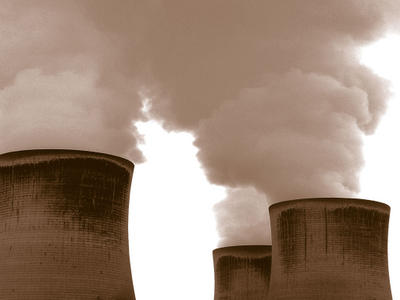 Senate Environment and Public Works Committee
Senate Environment and Public Works CommitteeHearing of September 28, 2005
Supplementary Statement Submitted by the Honorable Richard E. Benedick Concerning Michael Mann and Colleagues
Like Dr. Crichton, I am not a climate scientist and also like Dr. Crichton, I have followed the controversy surrounding Dr. Michael Mann and his associates. Given that Dr. Crichton has devoted considerable attention to this matter in his testimony, I would also like to add some observations for the record of the Hearing.
First, contrary to Dr. Crichton’s assertion, it is a matter of record that the initial paper by Mann et al., which appeared in the highly respected scientific journal Nature in 1998, did undergo thorough peer review prior to its publication.
Second, it is my understanding that all of the data and methodologies used by them is publicly accessible and has been accessible since 1998. The only controversy has been about access to the specific computer program used by Dr. Mann and his co-authors. While the data and methodologies are typically the only requisites for public access, Mann and colleagues have also made their computer program available. I note that the National Science Foundation has been consulted on this matter and its legal office has stated that Dr. Mann and his colleagues have behaved in an entirely appropriate manner.
Third, Dr. Crichton is correct to assert that replication of results is a very important aspect of sound science. I understand that the work of Dr. Mann et. al has in fact been replicated by other climate scientists.
I understand that the Committee has received through other channels the letter sent by Dr. Mann to the House Committee on Energy and Science on July 15th of this year. This letter addresses in detail each of the issues raised by Dr. Crichton and others. The letter also indicates where the data, methodologies and computer programs are publicly accessible. I believe it is important that no one reading the record of this Hearing should have the impression that the statements made by Dr. Crichton have not already been addressed.
There appears, moreover, to be controversy about the type of peer review undertaken on the paper by McIntyre and McKitrick before its publication in the magazine Energy and Environment, as well as whether the alleged “errors” that they report are in fact real, and indeed whether the work of McIntyre and McKitrick is itself replicable.
In conclusion, there will always be disputes and disagreements among reputable scientists of good will. This is a normal part of the process of developing generally respected sound science. I would like to emphasize that reputable, peer-reviewed journals, and trusted, apolitical institutions like the National Academy of Sciences, have earned a deserved reputation as the best places to resolve scientific disagreements, rather than politicized innuendos, conspiracy theories, or science fiction novels. I believe that those who would make sensationalized accusations about the integrity of scientists – accusations that could destroy professional careers -- have an ethical obligation to check their facts before seeking publicity. Unless they do this, their insinuations merit no credibility.

No comments:
Post a Comment